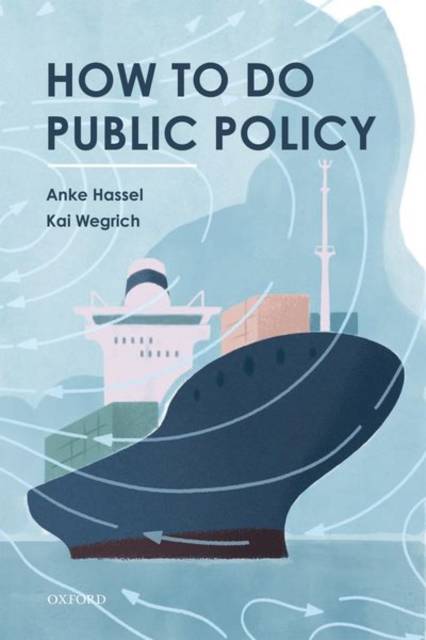
- Retrait gratuit dans votre magasin Club
- 7.000.000 titres dans notre catalogue
- Payer en toute sécurité
- Toujours un magasin près de chez vous
- Retrait gratuit dans votre magasin Club
- 7.000.0000 titres dans notre catalogue
- Payer en toute sécurité
- Toujours un magasin près de chez vous
Description
How to Do Public Policy offers a guide to students and practitioners on how to improve problem-solving with policies in a political world. It integrates insights from applied policy analysis and studies of the policy process to develop a framework that conceives policy-making as structured by two spheres of action - the 'engine room' of specialists and experts in government agencies, NGOs, research organizations etc., on the one hand, and the political 'superstructure' of politicians, key public stakeholders and the public, on the other hand. Understanding the different logics of the engine room and the superstructure is key for successful policy-making. The dual structure of policy-making provides a perspective on policy-analysis (interactive policy analysis) and policy-making (actor-centred policy-making) that moves from the focus on individual and specific measures, towards understanding and shaping the relation and interaction between policy interventions, the institutional context and the stakeholders involved or affected. Part I of the book presents the basic analytical concepts needed to understand the policy process and the structures and dynamics involved in it, as well as to understand how and why actors behave the way they do-and how to engage with different types of actors. Part II moves further into the nuts and bolts of policy-making, including policy design, implementation, and evaluation. Part III introduces and explores three key aspects of the capacity to make good policies: engagement with stakeholders, the process of policy coordination in a context of interdependence, and the role of institutions.
Spécifications
Parties prenantes
- Auteur(s) :
- Editeur:
Contenu
- Nombre de pages :
- 400
- Langue:
- Anglais
Caractéristiques
- EAN:
- 9780198747000
- Date de parution :
- 03-10-22
- Format:
- Livre relié
- Format numérique:
- Genaaid
- Dimensions :
- 163 mm x 239 mm
- Poids :
- 825 g

Les avis
Nous publions uniquement les avis qui respectent les conditions requises. Consultez nos conditions pour les avis.






